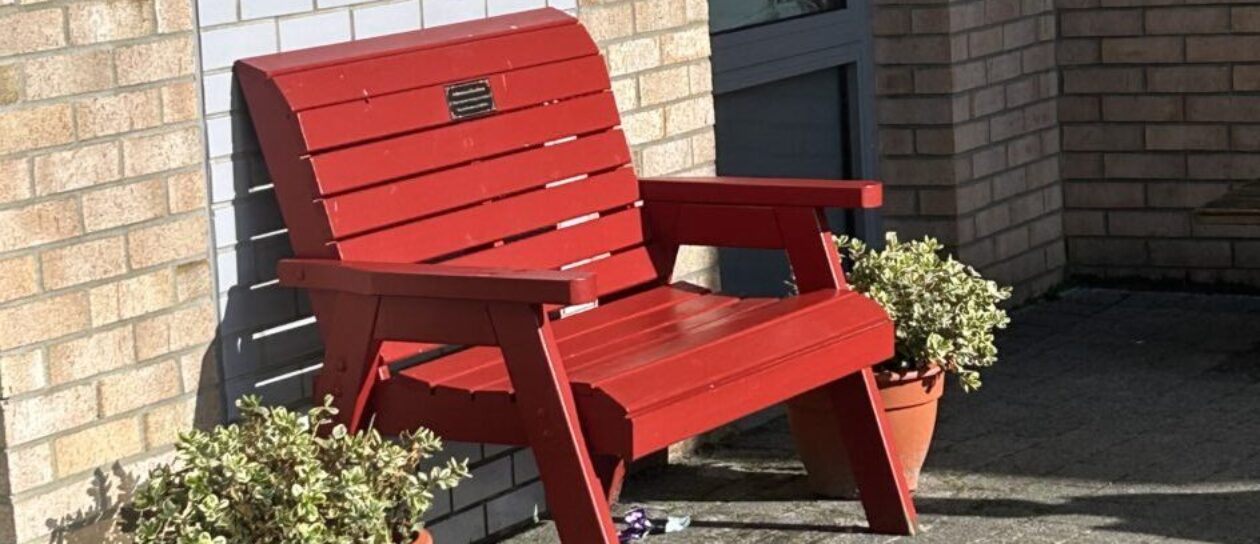Literacy
Literacy is about learning to read and write accurately, being able to listen carefully and talk clearly about ideas.
St John Bosco’s whole school approach to reading will use
reciprocal reading skills. Reciprocal teaching refers to
an activity in which children become the teacher in small group reading sessions.
Teachers model, then help students learn to guide group discussions using four strategies:
• Summarising
• Questioning
• Clarifying
• Predicting
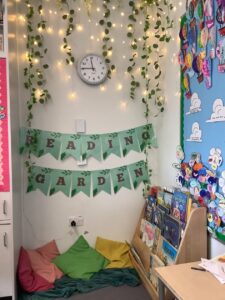
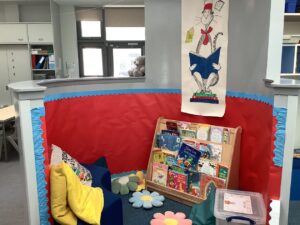
Once children have learned the strategies, they take turns assuming the role of teacher in leading a dialogue about what has been read. This is a successful strategy which is used in many schools and
will further develop our children’s skills in reading.
Primary 1 to 3 use a variety of Texts to support their reading development including books from the Big Cat series.
Primary 4 to 7 may still use Big Cat books and other texts and novels to complement the Accelerated Reading programme.
Accelerated Reader guides children to books that are most likely to catch their interest. Every student has an individual reading difficulty range, helping them find a ‘just right’ balance between reading success and challenge. Upon finishing a book, readers take a quiz to monitor their comprehension. The quiz gives them and their teachers instant feedback to help them progress.
There are many opportunities in everyday routines to practise and apply literacy skills in real and meaningful ways e.g. reading to your child every day, learning nursery rhymes together and pointing out signs in the local community. (Parent Zone)
Creative Writing
Over a two year period St John Bosco will be working with the Paul Hamlyn Foundation & Scottish Book Trust on a new project which encourages teachers and children to develop as creative
writers.
Project aims:
• Provide access to professional authors
• Develop teacher confidence about creative writing
• Allow space to be creative
• Support changes to how creative writing is taught
Talk for Writing
The Talk for Writing approach is one approach to writing taught in St John Bosco. It is utilised across the stages using Fiction and Non fiction texts. The aim of the approach is to support children to read and write independently for a variety of audiences and purposes within different subjects. A key feature is that children internalise the language structures needed to write through ‘talking the text’, as well as close reading. The approach moves from dependence towards independence, with the teacher using shared and guided teaching to develop the ability in children to write creatively and powerfully.
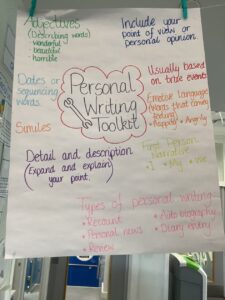
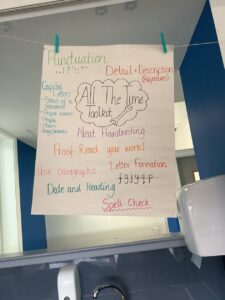
Languages in Curriculum for Excellence
There are two parts to learning in languages. The first is about the language your child needs to be fully involved in their society and in learning (English). The second is learning additional languages.
Your child will develop a secure understanding of how language works, and will use language to communicate ideas and information in English and other languages. They will develop their ability to communicate their thoughts and feelings and respond to those of others.
What will my child learn?
Each area of the curriculum is broken down into experiences and outcomes. These are clear and concise statements about children’s learning and progression from pre-school to S3.
Language Learning – a 1+2 Approach
Your child will experience learning another language from primary 1 to the end of the broad general education in secondary school. This language is referred to as Language 2 (L2). Language 1 (L1) is the language you speak at home. The L2 will be one from the list of languages available at National Qualification level in secondary school, and will be decided by the primary and its associated secondary school staff. The languages available in St John Bosco are French and Spanish. The choice of language offered depends on both the primary and the secondary schools’ capacity to deliver these languages. This L2 in primary school is taught by your child’s class teacher.
Learning other languages means your child can make connections with different people and their cultures. They will increase their enjoyment and understanding of their own and other cultures. Their ability to use different languages will allow them to understand and communicate socially and in the world of work.
